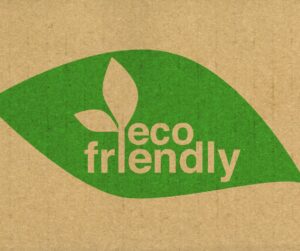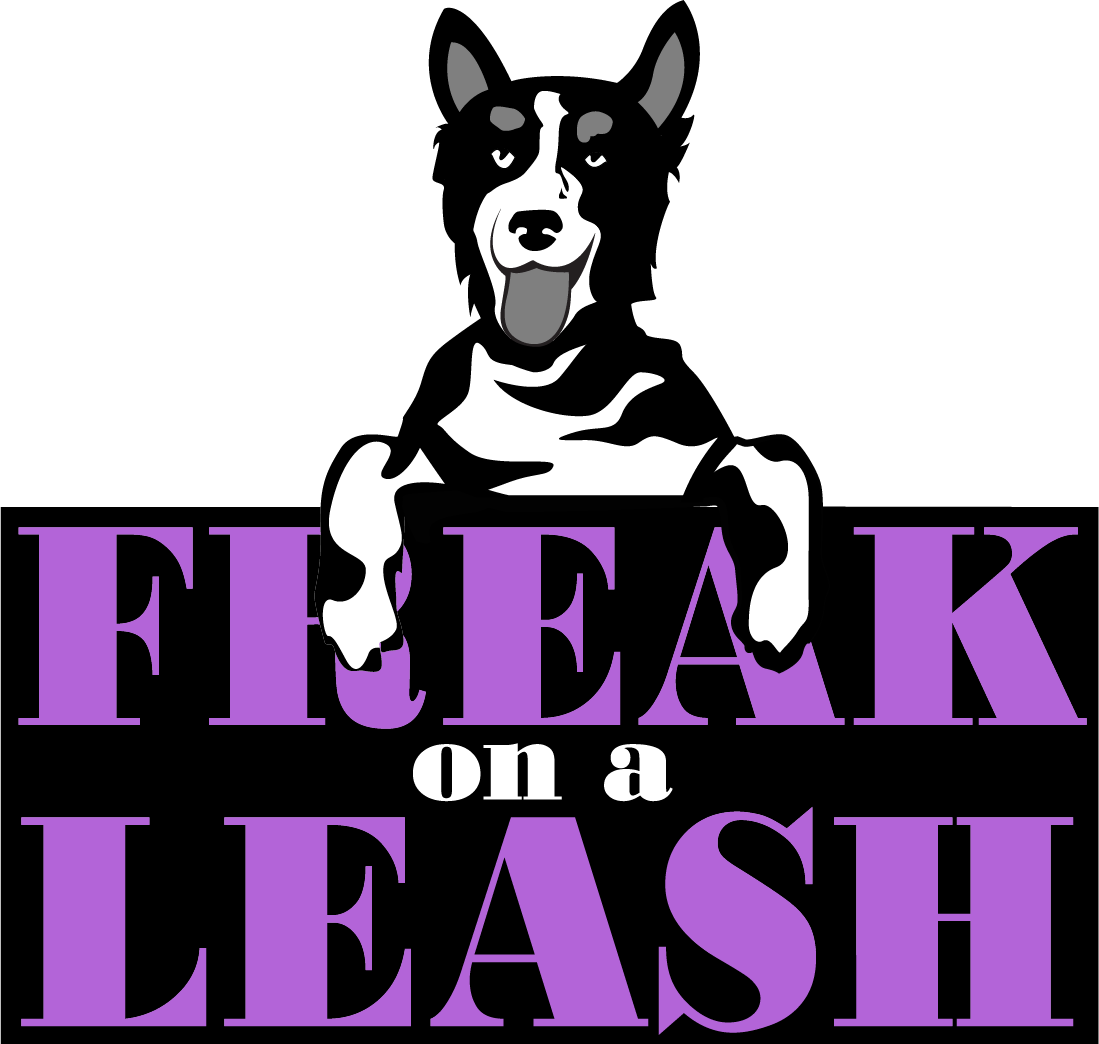If you’re anything like me, you agree it’s important to take care of this big beautiful planet of ours and protect it anyway we can. After all, we only have this one, and I want my kids and eventually grandkids to be able to enjoy it.
“Going green” or being eco-friendly doesn’t mean you need to be an activist or ban every single-use item from your house. It just means making conscious choices for you, your family, and your pets that tend to help, rather than harm, the environment.
For my business it means using eco-friendly toys, recommending companies that care about being eco-friendly for dog leashes, harnesses, treats all the other stuff your pup needs.
You probably buy a lot of stuff for your pet: food, dog beds (I’m addicted to buying dog beds) and toys. Do you know if the companies you are buying from include being environmentally conscious in their mission?
I try to keep my pet product purchases as sustainable and eco-friendly as possible. If you’re curious on where or how to find green pet products, here are my tips to get started.
 1. Look for transparency
1. Look for transparency
Transparency is a pawsitive, and eco-friendly brands are proud to talk about their sourcing. Brands that are open about their sourcing, environmental pawprint and business practices get a yes from me. It is important how pet brands source their material because the quality and ethics of the materials used can have a significant impact on the well-being of the animals using them.
For example, the ingredients in pet food can affect the animal’s health and longevity. If a manufacturer sources low-grade or contaminated ingredients, it can potentially harm pets or even cause illness.
Similarly, with toys and accessories, the materials used can impact an animal’s safety and enjoyment. Cheaply made toys or those containing harmful chemicals can pose a risk to the animal’s health or lead to injury.
Check out the websites of brands you buy to see if they mention the environment in their mission or when they discuss ingredients of packaging.
2. Check for accreditation
A company doesn’t need accreditation to be eco-friendly, but it sure helps to know if they’ve been vetted by an outside organization. You can check places like
- The U.S. Environmental Protection Agency’s Safer Choice Label: This label helps consumers identify products that have been verified by the EPA to contain environmentally-friendly ingredients and meet strict emissions standards.
- CertiPUR-US: This organization certifies foam-based products (such as dog beds) that meet strict standards for content, emissions and durability.
- Global Organic Textile Standard (GOTS): This standard verifies that a textile product has been made using at least 70% organic fibers, and meets strict environmental and social criteria throughout the supply chain.
- Rainforest Alliance: This organization verifies that products (such as pet food) have been sourced in a way that is environmentally and socially responsible.
- Forest Stewardship Council (FSC) certification: This certification validates products (such as pet litter boxes) made with wood from responsibly managed forests.
Look for their symbols or a mention of accreditation on the company’s product or website when you’re shopping for pet products.
3. Beware of deep discounts
Eco-friendly can be affordable, but they don’t tend to go on sale often because ethical sourcing doesn’t always lend itself to deep discounts If you are getting a lot of coupons or discounts for a product, research it more to see if it truly is eco-friendly or seems to be just “greenwashing.”
4. Non-GMO, preservative-free, natural, and organic
Pet food – and the words used to describe it – is a tricky subject. Nature-themed packaging and words like “natural” and “clean” can easily sway a conscientious buyer, but do they really mean better food? For this reason, learn how to read pet food labels, and always consult with your vet on your dog’s nutrition. Here are some talking points to discuss with your vet when switching your dog’s food:
- Nutritional Needs: Discuss your dog’s specific nutritional needs, including their age, breed, activity level and any health conditions. Your vet can help recommend a type of dog food and feeding plan that will meet your dog’s unique dietary needs.
- Transitioning: When transitioning to a new dog food, it’s important to do so gradually over a period of about a week. This lessens the likelihood of gastrointestinal issues such as vomiting or diarrhea. Ask your veterinarian for specific instructions on how to transition your dog to the new food.
- Allergies or Food Sensitivities: If your dog has any known allergies or food sensitivities, discuss them with your vet to ensure the new food doesn’t contain any of these allergens. Your vet can help recommend a type of dog food that is safe and appropriate for your dog.
- Feeding Schedule and Portions: Your vet can help you determine an appropriate feeding schedule and portion sizes based on your dog’s unique nutritional needs and lifestyle.
- Quality and Ingredients: Ask your veterinarian for their opinion on the quality and ingredients of the dog food you are considering. Your vet can help you choose a high-quality food that meets your dog’s nutritional needs and is free from potentially harmful additives or fillers.
By discussing these points with your vet, you can ensure that your dog’s transition to a new food is safe and smooth, and that you are providing your dog with the nutrients they need for a healthy and happy life.
 5. Look for biodegradable or compost-friendly options
5. Look for biodegradable or compost-friendly options
While biodegradable products aren’t perfect – they often still take a long time to break down in a landfill – but they can have a reduced overall impact on the environment.
-
Reduced Environmental Impact: Biodegradable and compost-friendly products are designed to break down more quickly and more safely than traditional, non-biodegradable products. They are made from natural materials, such as plant fibers, paper, or wood, which are not harmful to the environment the way that plastics or other synthetic materials can be.
-
Soil Enrichment: Composting is a way to decompose organic materials into nutrient-rich soil. By using compostable products, you can add beneficial organic material to the soil, reducing the need for chemical fertilizers that can be harmful to the environment.
-
Reduced Waste: Traditional plastics and other non-biodegradable products can take hundreds or even thousands of years to break down, which means they continue to take up space in landfills, often never fully decomposing. Biodegradable and compostable products, on the other hand, break down quickly and leave behind little to no waste.
-
Promotes Sustainable Living: By choosing biodegradable or compostable products, you are making a conscious decision to reduce your environmental impact and promote a more sustainable way of life. Small actions, such as choosing eco-friendly products, can have a significant impact on the health of the planet and the well-being of future generations.
 Eco-Friendly Pet Companies
Eco-Friendly Pet Companies
Sustainability is a passion of mine, which is why I do a lot of research into the products and companies I use for my dogs products. Here are some of the brands I recommend.
- West Paw: West Paw creates eco-friendly dog toys, beds and accessories using recycled materials. Their products are also made in the USA and are designed to be long-lasting and durable.
- Earth Rated: Earth Rated offers eco-friendly dog waste bags made from recycled materials. Their bags also break down quickly in a compost bin and are certified as biodegradable and compostable.
- Simply Fido: Simply Fido creates organic dog toys made from natural, sustainable materials such as organic cotton and plant-based dyes.
- Ruffwear: Ruffwear creates outdoor dog gear made from sustainable materials such as recycled polyester and organic cotton. They also focus on reducing their environmental footprint through their business practices.
These are just a few examples of eco-friendly dog brands, but there are many more out there! By choosing products from these types of brands, you can ensure that you’re taking steps to reduce your dog’s environmental impact and promote sustainable living.
Protecting the planet protects our future. We can make a big difference by voting with the dollars we spend on our pets.
Shopping for eco-friendly pet supplies in Virginia Beach? Make sure to check out these stores:
Already been chewed: In this cute little store on Bonney Road in Virginia Beach, you can buy gently used items for your pets.
Dogstuff is a small family owned and operated store on Birdneck Road in Virginia Beach offering healthy quality food for your pets.
Wolfpack Pet supply on N Great Neck Road in Virginia Beach offers a variety of eco-friendly options for your dog.
Read about more eco-friendly enrichment ideas for your pet here 6 Eco-friendly ways to enrich your pet’s environment.
Are you aware of a great green pet company we should know about? Fill out our contact form to let me know

